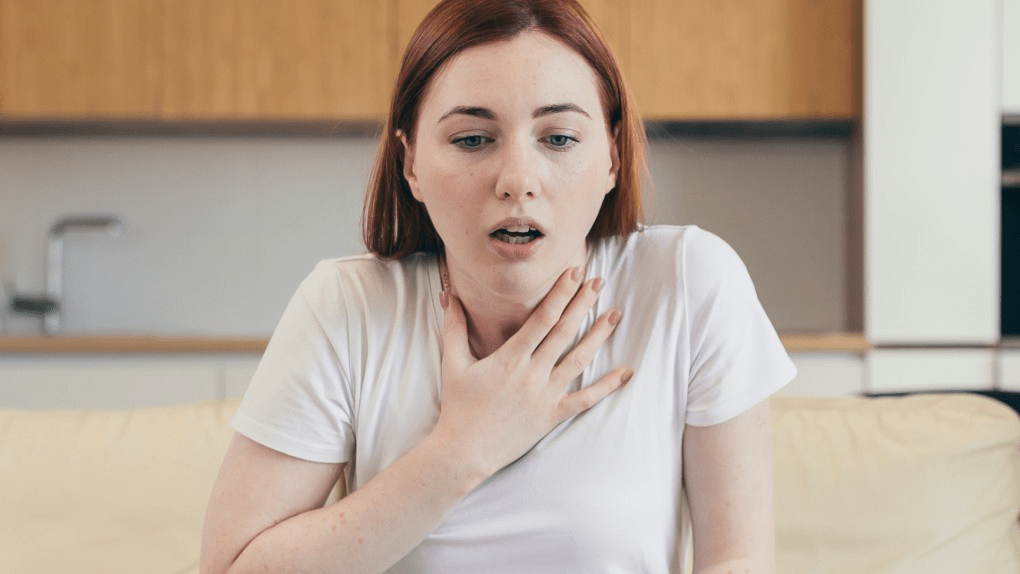Panic attacks are intense feelings of fear and anxiety experienced during periods of significant changes in daily life or times of high stress. They can be quite debilitating, especially for those experiencing them for the first time. In addition to intense feelings of fear, they are accompanied by difficulty breathing, palpitations, and dizziness. They typically last for about 15 minutes, but with appropriate coping mechanisms, you can manage them effectively and gradually remove them from your life.
Below, we will explore everything you need to know about panic attacks, their symptoms, the reasons they occur, and how you can address them.
What are panic attacks?
Panic attacks are sudden episodes of fear and anxiety accompanied by intense physical symptoms. The anxiety and fear arise without any apparent cause or danger. Those experiencing panic attacks suddenly feel like they cannot control themselves, their thoughts, breathing, or body. In most cases, they feel like they are dying or experiencing a cardiac problem.
It’s important to clarify that panic attacks cannot threaten life directly. However, they can significantly affect daily life because the sufferer constantly fears their recurrence. As a result, they often avoid social interactions and isolate themselves.
What are the symptoms of a panic attack?
The symptoms of panic attacks are intense and leave you with a profound sense of exhaustion and weakness afterward. They can occur unexpectedly at any time, whether you’re working, walking down the street, or even sleeping. The symptoms are quite severe and leave behind a strong sense of fatigue once they subside. Some of the symptoms include:
- Profuse sweating
- Tightness/Pressure in the chest
- Palpitations
- Rapid breathing/slow breathing
- Feeling of loss of body control
- Fear of death
- Trembling
- Nausea
- Chills
- Constant worrying
- Headache
- Dizziness
- Stomach ache
- Numbness
- Feeling disconnected from reality
Why do we experience panic attacks?
Panic attacks can occur at any time in a person’s life due to various reasons. Factors such as genetics, intense anxiety and stress, individual personality traits, and susceptibility to change can influence their occurrence. Additionally, other factors such as family members experiencing the same problem, significant life changes like the birth of a child, excessive caffeine consumption, or childhood abuse can contribute to the onset of panic attacks.
What are the types of panic attacks?
Many people confuse panic attacks with anxiety attacks because they share several commonalities. However, they also have significant differences. Panic attacks are intense and sudden, usually accompanied by a strong sense of fear. On the other hand, anxiety attacks are more gradual and mild, with thoughts mainly focused on a specific unpleasant situation.
What is the appropriate treatment for panic attacks?
There is treatment available for panic attacks, and it’s crucial to seek help from a specialist immediately. Allowing panic attacks to occur without seeking psychological assistance can exacerbate the condition, potentially leading to the development of phobias or feelings of helplessness, self-isolation, and reduced social engagement, leading to agoraphobia.
Moreover, although panic attacks initially do not directly threaten your health, if left untreated and accumulate significant stress and fear in your body, they may manifest over time with actual health problems.
The specialist will determine whether your treatment will consist solely of psychological monitoring or if you will need medication for a period until you feel more confident and capable.
Is there a way of dealing with a panic attack without medication?
There are indeed methods to manage panic attacks without medication. Besides seeking professional help, various techniques can complement therapy and help alleviate symptoms, making you feel better more quickly. Some of these methods include:
Deep breathing exercises
Taking slow, deep breaths can help reduce anxiety and simultaneously relax your body. Start by slowly inhaling deeply for 5 seconds, hold your breath for 5 seconds, then exhale slowly for about 5 seconds. Repeat this process until you feel better.
Progressive muscle relaxation techniques
Techniques such as progressive muscle relaxation can reduce anxiety and provide relief from discomfort. Start from the bottom of your body and progressively move upwards. Tense your muscles for a few seconds, then release them abruptly. Repeat this process on your calves, thighs, and gradually move to other parts of your body until you reach your head.
Positive thinking
Repeating positive thoughts helps counter negative thoughts and emotions. When you start feeling distressed, focus your attention on happy and optimistic images or thoughts. Some affirmations you can repeat either silently or aloud include:
- I acknowledge what is happening to me and let it go.
- I release my fear, I release my panic.
- I feel safe.
- I trust myself.
- I listen to my body and take care of it.
Energy Healing
Your thoughts and emotions don’t remain hidden, no matter how deeply you bury them in your subconscious. Instead, they create blockages in the flow of energy within your body.
That’s why you feel your body trembling, fearing, numbing, or paralyzing. By releasing negative thoughts and emotions, energy flows freely again in your chakras, and you feel light and bright. Don’t be afraid to look into the darkness within you. Only then will you emerge into the light again.
Lie down and feel every part of your body, from head to toe. Focus on each point, “sending” it a separate light, or envision yourself as a whole inside a ball of light that cleanses and revitalizes you.
Take deep breaths, let the light “bathe” you, relax within it. Use Crystal Healing and the power of therapeutic crystals, which “take away” negativity from you and fill you with their unique properties, such as strength, self-confidence, and tranquility.
Panic attacks are sudden episodes of fear or anxiety that also manifest with physical symptoms, such as shortness of breath or rapid heartbeat. Although they are not immediately life-threatening, the sufferer feels as if they are in danger. However, there are many ways to cope with panic attacks, even at the moment when symptoms begin. The important thing is to remember that you are not alone and that it is a situation that can pass.
Let’s work together to release the negative feelings and thoughts that keep you in a state of numbness and helplessness, and feel your strong, free, true self again.
Whatever energy therapy you choose will complement the guidance of your psychologist or psychiatrist. No medication is provided

